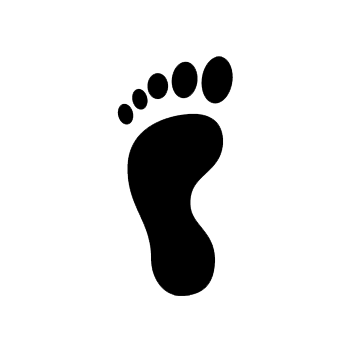Many people assume that their minor heel pain will go away on its own after a few days of rest. It might, but not promptly addressing it may allow it to progress into a chronic, daily issue that causes significant impairment to your daily life. Our podiatrists from The Foot & Ankle Group often treat heel pain in Bordentown, Columbus, and Mount Laurel, Philadelphia, PA.
What Are the Causes of Heel Pain?
Determining the correct cause of your pain is the critical first step in choosing an appropriate treatment strategy. An incorrect initial diagnosis will result in incorrect and ineffective treatment.
Common conditions that lead to heel pain are:
- Plantar fasciitis
- Trauma to the foot and/or ankle
- Bone spurs
- Achilles tendonitis
- Arthritis
- Bursitis
There are also several uncommon causes of heel pain. Some examples are:
- Tarsal tunnel syndrome: There is a 'tunnel' in your ankle that encases nerves leading to the foot. Similar to carpal tunnel syndrome in the wrists/hands, this space in this tunnel can decrease for a variety of reasons. This causes the nerves to become pinched, leading to heel pain.
- Sever's disease: Seen in still-developing humans, this condition results from the heel cone growing faster than the ligaments and tendons of the lower leg. These structures can become overworked as a result.
- Stress fractures
- Heel pad bruise
- Haglund's syndrome: AKA 'pump bump.' This condition involves the development of a bony prominence on the back of the heel. This generally occurs in response to wearing shoes that don't fit well.
- Osteomyelitis: Inflammation or infection of the heel bone
- Exercising without adequately stretching the calf muscles
What Are Treatment Options for Heel Pain?
There are many options for treatment after the cause of your pain is diagnosed. The optimal treatment strategy for your heel pain may not be the same as for another person.
Treatment options that may be recommended for your heel pain in Bordentown, Columbus, and Mount Laurel, Philadelphia, PA are:
- Avoidance of aggravating activities
- Rest
- NSAIDs (non-steroidal anti-inflammatory drugs) and painkillers
- Cortisone injections
- Custom orthotics
- Changing shoes to ones that provide more support
- A course of physical therapy is commonly ordered for all heel pain. PT teaches stretches and strengthening exercises for targeted muscles that surround and support the heel. Pain-relieving modalities may also be used, such as ultrasound and electrical stimulation.
Surgery is usually suggested as a last resort when conservative measures have not helped the pain to your satisfaction. Surgery will only be recommended as the initial treatment is for severe cases. These include when the damage to your heel is so significant that your podiatrist is convinced it will not heal with conservative treatment.
Contact Us
Treat your heel pain in Bordentown, Columbus, and Mount Laurel, Philadelphia, PA. Schedule a consultation with one of our skilled podiatrists at The Foot & Ankle Group by calling one of our 4 locations.
- Bordentown - (609) 291-0960
- Columbus - (609) 298-7000
- Mt. Laurel - (856) 234-0195
- Philadelphia - (215) 332-5300

